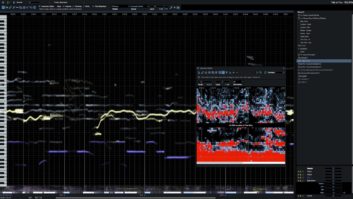I don’t generally get to use the phrase “Here’s some breaking news,” in this space, but, well, here’s some breaking news. Today in Brussels, the EU parliament passed The European Union Directive on Copyright, a new law that includes a number of provisions to protect content creators.
A great deal of controversy surrounded the law as it made its way toward passage. One part in particular, Article 17 (just renamed after becoming infamous under its previous name, Article 13), will force companies like YouTube, Facebook and Google to protect copyrighted material on their sites more vigorously.
Although this law covers EU countries only, it’s considered significant for the U.S. market, as well, because if its provisions turn out to be effective, it could serve as a model for new measures here. There was a lot of fear-mongering on both sides during the run-up to the vote; most notably, the big tech companies tried to convince people that the law will curtail their online freedom. The best analysis of the issues involved that I found is in this video from Wired, which offers both sides of the argument and was made before the final vote.
Those who were against the provision previously known as Article 13, warned that the only way tech companies would be able to police their vast volume of user uploads is with “draconian” content filters. The concern is that these filters will have to be so broad to comply with the law that they will end up inadvertently blocking copyrighted material that’s allowed under exemptions in the code for reviews, parodies, caricatures and pastiche.
There was even a rumor going around in anti-Article 13 circles that the law would have meant an end to uploaded “memes,” which was not true (although I kind of wish it were, to be honest).
Artists got involved in lobbying, as well. Debbie Harry wrote a recent piece in the Guardian in favor of the new protections:
As a singer-songwriter with more than 40 years of experience in the industry, I know first-hand how much hard work, time and investment it takes to make music. When that music is exploited by these digital services for their own gain, it is devastating to creators.
Wyclef Jean took the other side. In an interview in Politico.eu, he postulated that the new rules would do more harm than good to artists:
It’s far more beneficial for me to embrace the community that is remixing my art, to set my own rules about how my work is used, and to embrace the shared creativity and profits that come from it. It wasn’t easy for me to adapt my thinking, but today I work with a number of online services to give fans what they want while still getting paid… So rather than demonizing and tearing down the internet and responsible service providers, we should team up and make the music community work better for everyone.
If you read the comments section for the Harry article, or just about any user commentary on the subject of Article 13, you’d see multiple instances of a rather appalling attitude: Almost total disdain for the concept of intellectual property. With the caveat that comments sections tend to be places where intelligent thoughts go to die, the ubiquity of that attitude, which seems to be a driving force behind the many protests against the bill, makes me wonder whether those who’ve grown up exclusively in the internet age have a very different idea of the value of a copyright.
In any case, now that the law has passed, there will be a two-year delay before it goes into effect, so that individual member states of the EU can pass their own internal laws to implement the EU directives. After that, it will be fascinating to see whose predictions about the law are closer to reality. I have the feeling it will fall somewhere in the middle. But if artists and composers are getting better compensated, then it will be worth a little more hassle for people uploading videos of themselves singing Taylor Swift hits or posting cat videos featuring Ed Sheeran songs ripped from Spotify.







